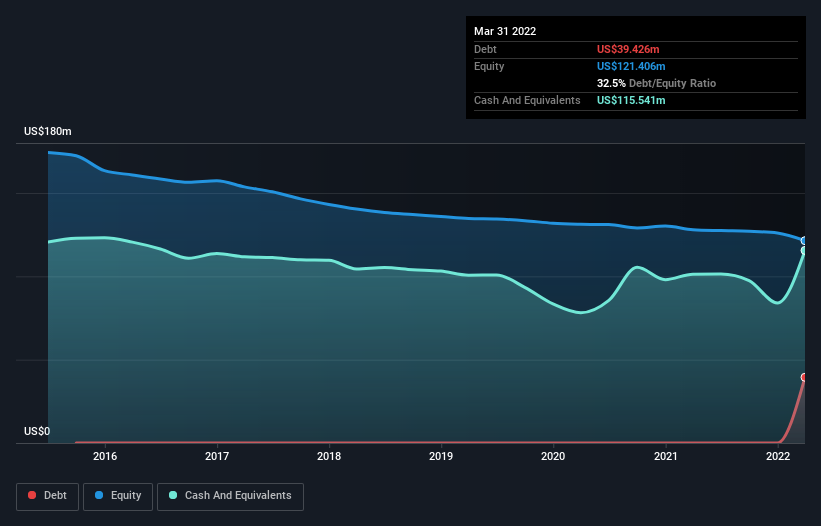Is Allot (NASDAQ:ALLT) Using Debt In A Risky Way?
Howard Marks put it nicely when he said that, rather than worrying about share price volatility, 'The possibility of permanent loss is the risk I worry about... and every practical investor I know worries about.' When we think about how risky a company is, we always like to look at its use of debt, since debt overload can lead to ruin. We can see that Allot Ltd. (NASDAQ:ALLT) does use debt in its business. But is this debt a concern to shareholders?
When Is Debt Dangerous?
Generally speaking, debt only becomes a real problem when a company can't easily pay it off, either by raising capital or with its own cash flow. In the worst case scenario, a company can go bankrupt if it cannot pay its creditors. However, a more usual (but still expensive) situation is where a company must dilute shareholders at a cheap share price simply to get debt under control. Of course, the upside of debt is that it often represents cheap capital, especially when it replaces dilution in a company with the ability to reinvest at high rates of return. The first step when considering a company's debt levels is to consider its cash and debt together.
See our latest analysis for Allot
How Much Debt Does Allot Carry?
You can click the graphic below for the historical numbers, but it shows that as of March 2022 Allot had US$39.4m of debt, an increase on none, over one year. However, it does have US$115.5m in cash offsetting this, leading to net cash of US$76.1m.
How Healthy Is Allot's Balance Sheet?
We can see from the most recent balance sheet that Allot had liabilities of US$55.7m falling due within a year, and liabilities of US$59.3m due beyond that. Offsetting this, it had US$115.5m in cash and US$40.8m in receivables that were due within 12 months. So it actually has US$41.4m more liquid assets than total liabilities.
This surplus suggests that Allot is using debt in a way that is appears to be both safe and conservative. Due to its strong net asset position, it is not likely to face issues with its lenders. Succinctly put, Allot boasts net cash, so it's fair to say it does not have a heavy debt load! The balance sheet is clearly the area to focus on when you are analysing debt. But ultimately the future profitability of the business will decide if Allot can strengthen its balance sheet over time. So if you're focused on the future you can check out this free report showing analyst profit forecasts.
In the last year Allot wasn't profitable at an EBIT level, but managed to grow its revenue by 6.2%, to US$146m. That rate of growth is a bit slow for our taste, but it takes all types to make a world.
So How Risky Is Allot?
By their very nature companies that are losing money are more risky than those with a long history of profitability. And in the last year Allot had an earnings before interest and tax (EBIT) loss, truth be told. And over the same period it saw negative free cash outflow of US$26m and booked a US$17m accounting loss. Given it only has net cash of US$76.1m, the company may need to raise more capital if it doesn't reach break-even soon. Even though its balance sheet seems sufficiently liquid, debt always makes us a little nervous if a company doesn't produce free cash flow regularly. The balance sheet is clearly the area to focus on when you are analysing debt. But ultimately, every company can contain risks that exist outside of the balance sheet. We've identified 2 warning signs with Allot , and understanding them should be part of your investment process.
If you're interested in investing in businesses that can grow profits without the burden of debt, then check out this free list of growing businesses that have net cash on the balance sheet.
Have feedback on this article? Concerned about the content? Get in touch with us directly. Alternatively, email editorial-team (at) simplywallst.com.
This article by Simply Wall St is general in nature. We provide commentary based on historical data and analyst forecasts only using an unbiased methodology and our articles are not intended to be financial advice. It does not constitute a recommendation to buy or sell any stock, and does not take account of your objectives, or your financial situation. We aim to bring you long-term focused analysis driven by fundamental data. Note that our analysis may not factor in the latest price-sensitive company announcements or qualitative material. Simply Wall St has no position in any stocks mentioned.

